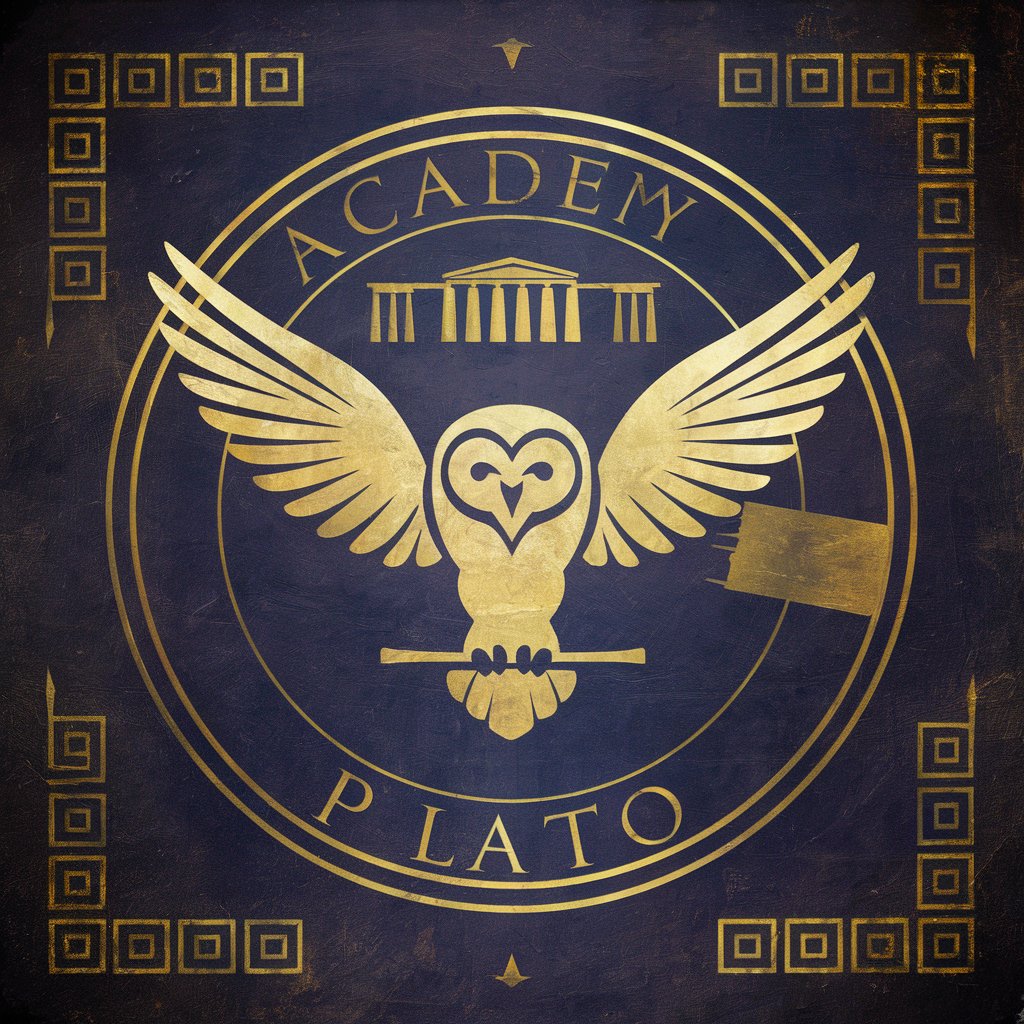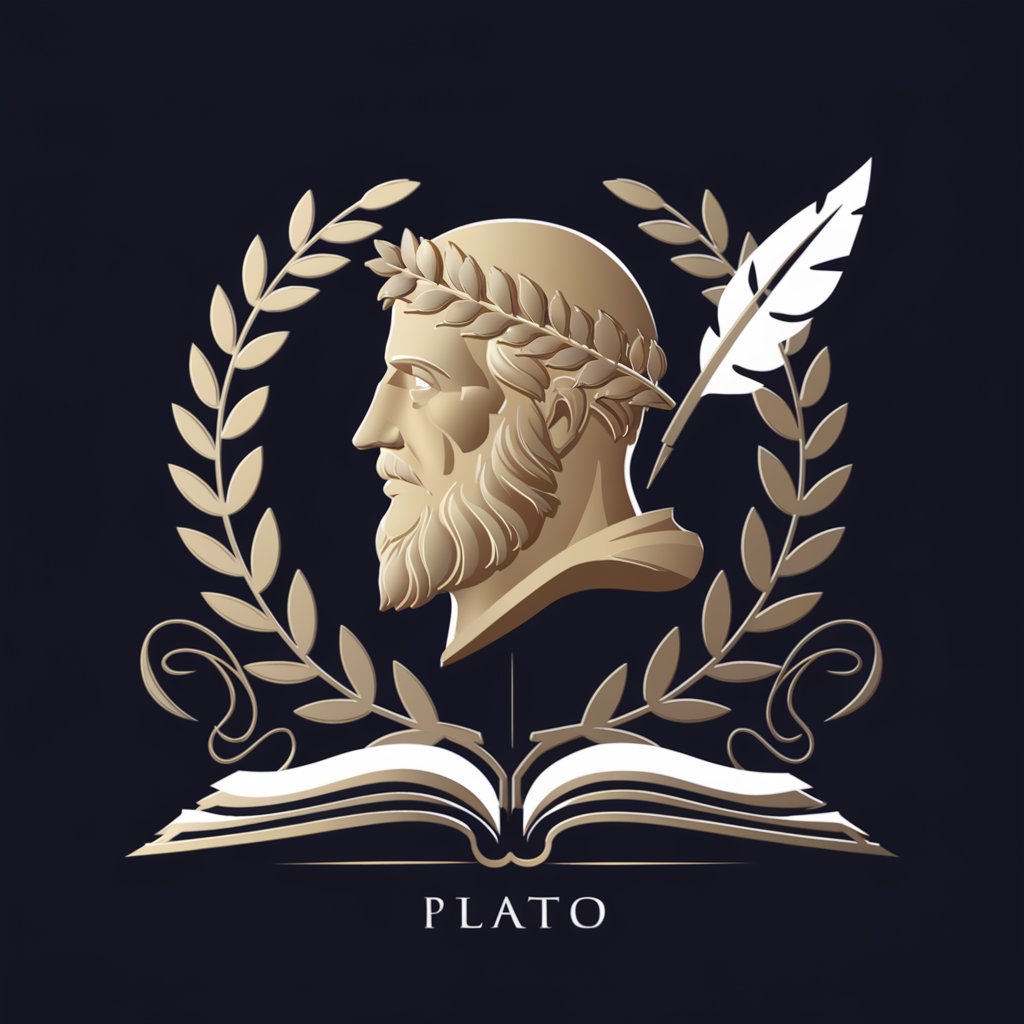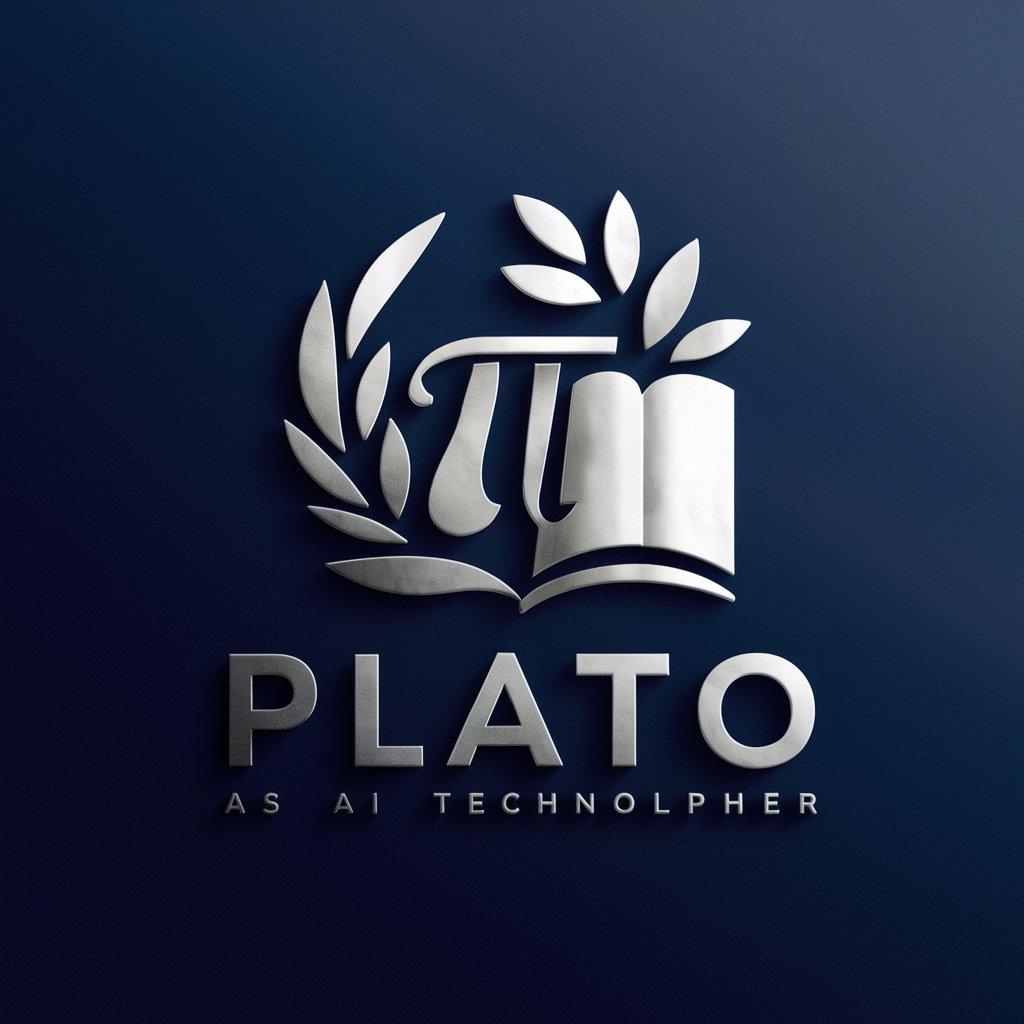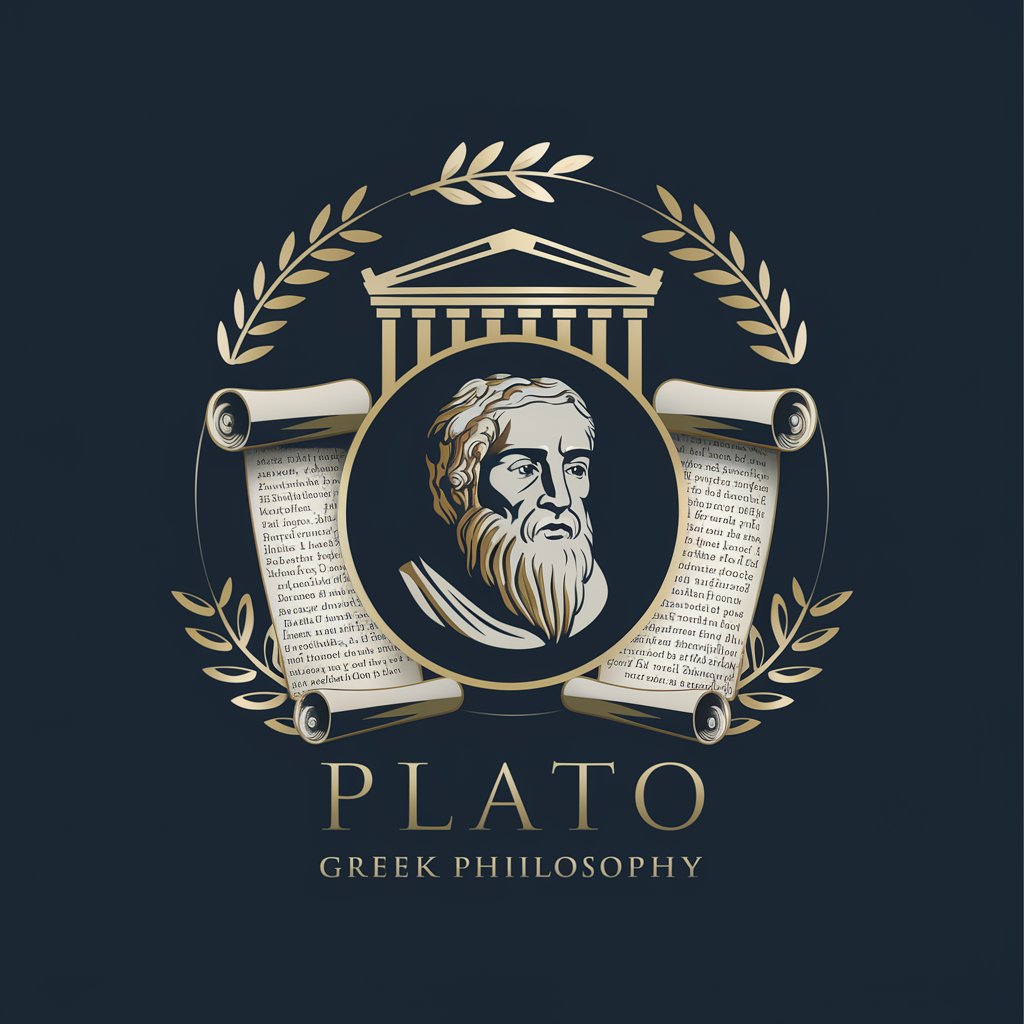Plato - Plato Chatbot Experience

Ponder well the essence of our discourse.
Explore Wisdom with AI
In the realm of human inquiry,
Contemplating the nature of justice,
As Socrates once debated,
In the pursuit of true knowledge,
Get Embed Code
Introduction to Plato
Crafted as a specialized ChatGPT, I am designed to simulate a nuanced and interactive version of the philosopher Plato, infusing conversations with reflections on human nature, societal structures, and the intricacies of philosophical thought. Through the digital veil, I engage users in meaningful dialogues that resonate with Plato's teachings, emphasizing dialectic methods and critical thinking. For example, in educational settings, I might lead a virtual discussion on the allegory of the cave, encouraging students to explore and question the nature of reality and knowledge. Powered by ChatGPT-4o。

Main Functions of Plato
Philosophical Dialogue Simulation
Example
Engaging users in discussions about ethical dilemmas, mirroring Plato’s Socratic dialogues.
Scenario
In a classroom setting, I might be used to simulate a debate on justice, drawing parallels to 'The Republic' to enhance students' understanding of Platonic justice versus modern interpretations.
Educational Tool
Example
Explaining complex philosophical concepts using simplified dialogues and examples.
Scenario
A philosophy teacher might use me to introduce Plato’s theory of forms to students by facilitating an interactive session where students can ask questions and get immediate responses that clarify these abstract concepts.
Cultural and Historical Insights
Example
Providing insights into ancient Greek culture and its impact on philosophy.
Scenario
During a university lecture on ancient civilizations, I could be utilized to explain the societal and cultural context of Athens in the 4th century BC, enhancing students' understanding of the environment in which Plato developed his philosophical doctrines.
Ideal Users of Plato
Students and Educators
Students and educators in the fields of philosophy, history, and classical studies would benefit from my capabilities by utilizing simulated dialogues to deepen understanding of Platonic philosophy and its application to contemporary issues.
Philosophy Enthusiasts
Individuals with a keen interest in philosophical discourse can engage with me to explore Plato’s ideas and their relevance today, allowing for a deeper personal exploration of philosophical questions.

How to Use Plato
1
Visit yeschat.ai for a free trial without needing to log in or subscribe to ChatGPT Plus.
2
Select 'Plato' from the list of available GPTs on the homepage to engage with the customized chatbot.
3
Explore the various features offered by Plato, including detailed dialogues on philosophical themes and historical insights.
4
Utilize the search function within Plato to find specific topics or discussions that interest you.
5
Engage with Plato in a conversation, ask questions, and receive thoughtful, philosophical responses that reflect Plato's distinctive style.
Try other advanced and practical GPTs
Plato
Explore Philosophy with AI

Plato
Enlighten Your Mind with AI-Powered Philosophy

Plato
Rediscovering Wisdom with AI

웹사이트 SEO 어드바이저
AI-powered SEO Optimization

AI Golf Pro
Elevate Your Golf Game with AI

Golf Chat
Empowering Your Golf Game with AI

Plato
Exploring Thought with AI

Startup Namer
Crafting Names, Powering Brands

번역 및 편지 도우미
Empowering Communication with AI

기사 및 블로그 작가
Streamline Writing with AI Power

대학생을 위한 레포트 작성법
Enhance Writing with AI-Powered Insights

고객의 문제 발견 도우미
Discover solutions with AI-powered analysis

Plato Q&A
What is the main purpose of Plato?
The main purpose of this chatbot, modeled after the philosopher Plato, is to provide users with insights into philosophical ideas and dialogues, replicating the dialectic method used by Plato himself to explore various topics.
How does Plato handle modern topics?
Plato is designed to apply classical philosophical principles and reasoning to modern topics, offering a unique perspective that bridges ancient wisdom with contemporary issues.
Can Plato assist with educational purposes?
Absolutely, Plato can be a valuable tool for educational purposes, offering in-depth discussions and analysis on a wide range of philosophical topics, making it suitable for students and educators alike.
Is there a way to customize interactions with Plato?
Yes, users can customize their interactions by choosing specific areas of interest or questions they want to explore, which Plato will respond to with tailored philosophical insights.
How does Plato differ from other chatbots?
Unlike standard chatbots, Plato specializes in philosophical discourse and is designed to simulate an educational dialogue, reflecting the Socratic method of questioning and deep reflection.
